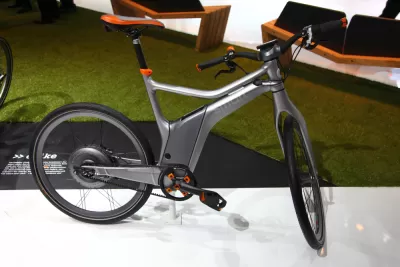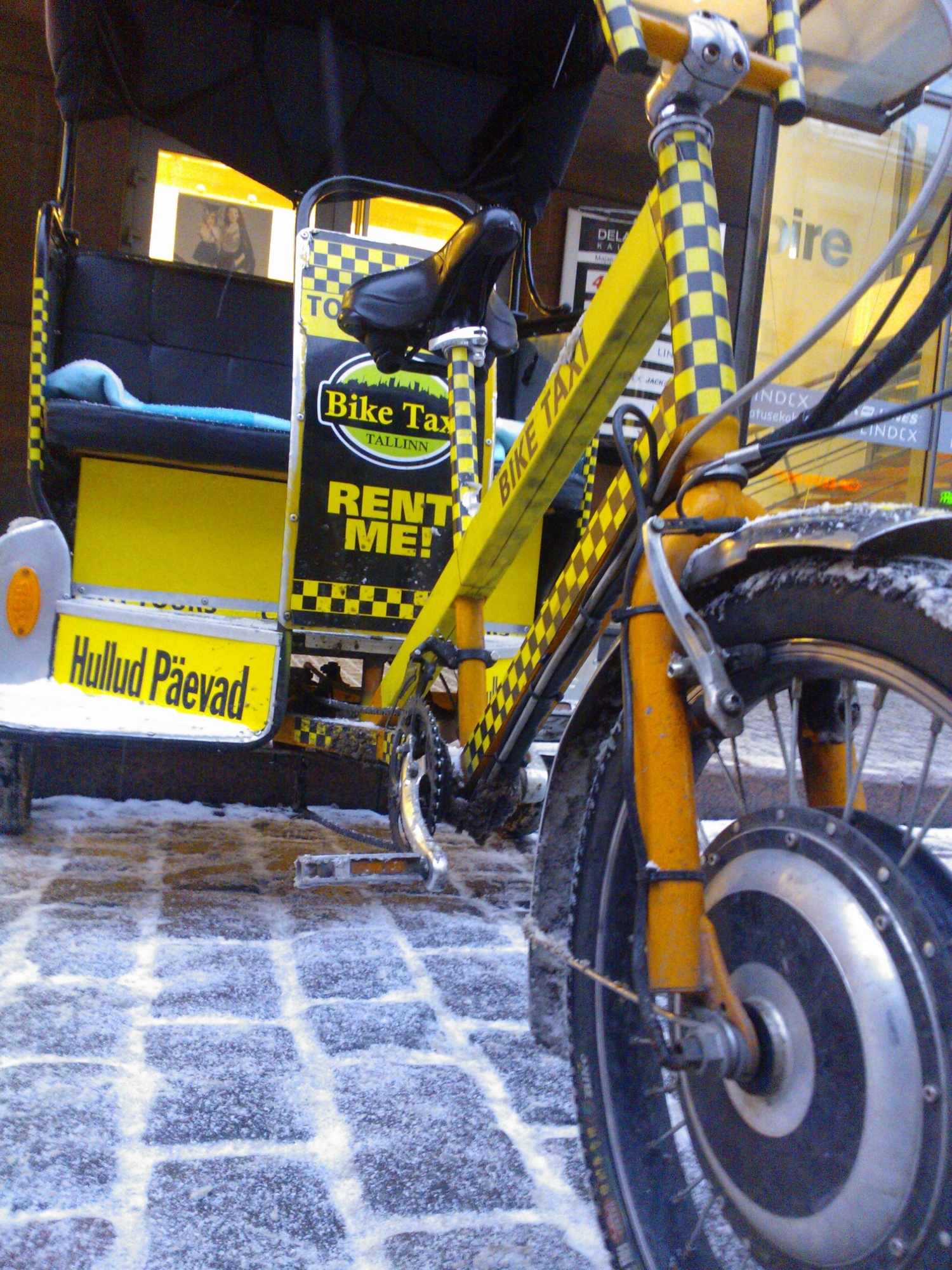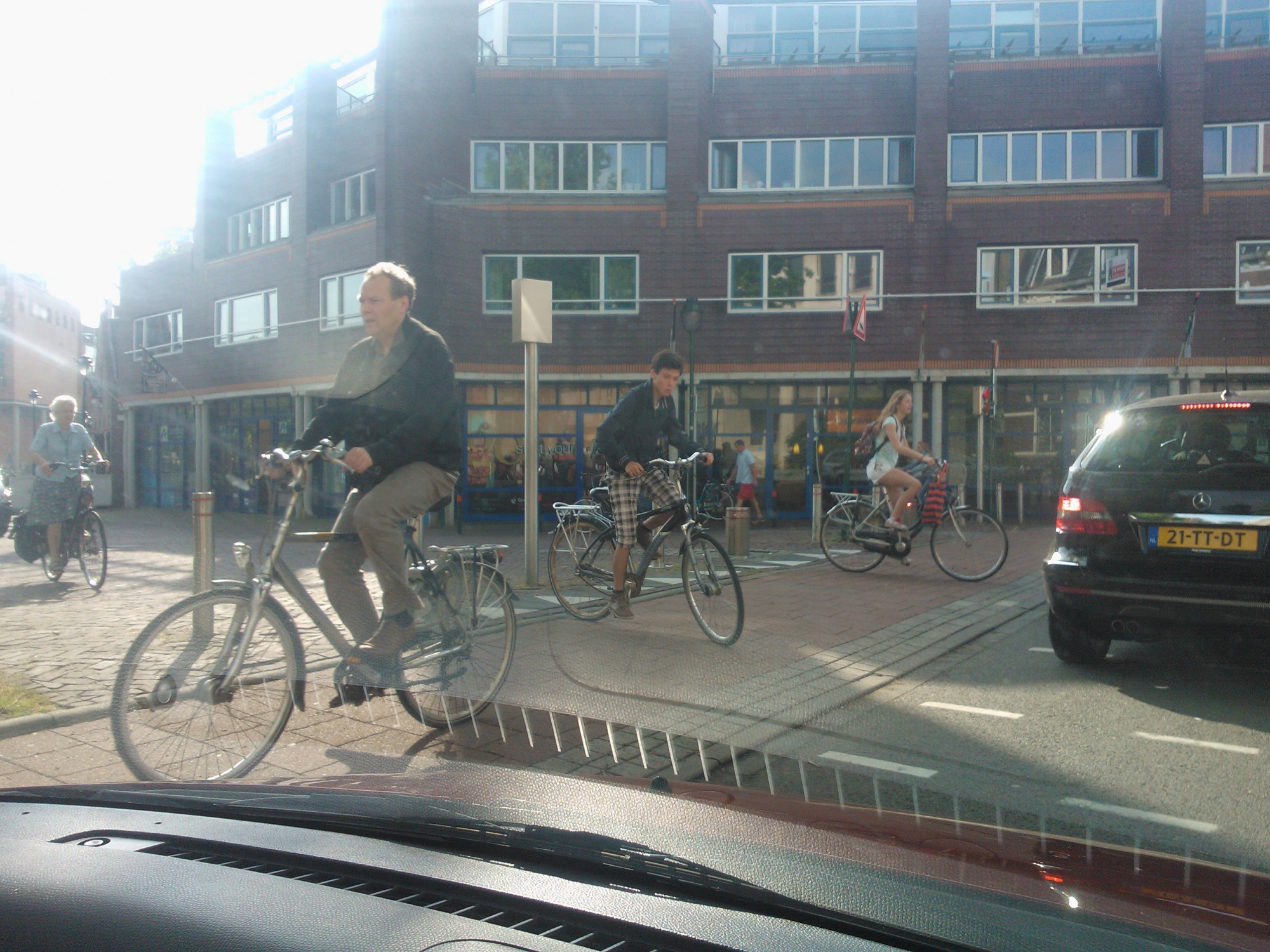When you have a small electric motor, a battery, and a throttle on your bicycle, it becomes very difficult to make any more excuses. Here's why...

Oh, yes I did! You thought you'd never hear the phrase "paradigm shift" again, and then, BAM!, there it is in my post title, combined with the modern-day journalist's favorite attention grabbing technique "# things you need to know about…" And to top it all off, once again, I'm making a prediction. But, hey, I'm always right!
Bicycling is almost the future of urban transportation. In coming decades, citizens of the world will demand more and more energy for all kinds of things, and although we will find ways to produce it—and ways to consume it more frugally—costs will surely rise (current geopolitical oil production shenanigans aside), and we will be charged more dearly for each watt-hour we consume. For these reasons, there will be a shift toward living in cities as well as toward human-powered transportation modes.
Walking is great for a few blocks, but otherwise it is too slow. Buses, BRT, trams, light rail, metro, are all important in terms of scales of cities, but many of our activities are within distances that shouldn't require such heavy equipment. What is needed is a lightweight, inexpensive, fast, and extremely energy efficient form of personal transport that can work reasonably well in nearly all conditions and can be used by people of all ages and physical condition. Bicycling is the obvious answer.

Unfortunately, in its current form, bicycling is not a great fit for many daily trips or for many people. The reason is mostly because we are all very good at making excuses, and furthermore, because many of these excuses are arguably legitimate. However, when you attach a small electric motor, a battery, and a throttle to your bicycle, it becomes very difficult to make any more excuses. Here's why:
- Bicycling is not so good for longer distances: Bicycling works very well for short distance rides (say, less than 3 miles/5 kilometers) in fair weather when you have no unwieldy packages or squirmy kids to take along. Beyond that, you need special clothing, special showering/changing facilities at your destination, special additions to your bicycle, special muscles, and special determination to maximize its use (for anyone commenting below that these last items are not needed, it is because you already have them). But, with existing, off-the-shelf technology that is already very well established in the industry, an e-bike can take you distances of 15-30 miles between charges, which means you can go just about anywhere you would normally need to with a daily battery charge just as you would with a mobile phone battery.
- Bicycling up hills and against the wind usually sucks: Yes, it's a good workout, but sometimes I just want to get home quickly and at those times, a headwind is no joy. Also, I am very good at using the steep hills along my work commute to successfully negotiate myself out of one or two bike rides per week. With a simple e-bike motor assisting your ride, these hills and winds are forgotten. You choose how much effort you want to make on a particular journey, but either way you are saddled up.
- Many people cannot ride a bike very far: Whether they are physically disabled, overweight, out of shape, or just unwilling, bicycling is not an option for many people. Of course there are anecdotes of countries where everyone rides a bike towing three kids, plus their grandchildren, and two weeks' groceries, up hill, both ways, on icy bicycle paths in a snowstorm, but this is not necessarily for everyone. However, there are also many anecdotal stories of e-bikes helping people who would otherwise not do so, get outside, get rolling in fresh air, and start moving their limbs in ways they couldn't if they were sitting in a car. And many of these people gradually improve their physical condition (and reduce their susceptibility to winter cold and flu). E-bikes also make it possible for those with more severe physical conditions to stay mobile without reliance on expensive and dangerous equipment. Consider the differences in personal freedom between an e-bike and a conversion van.
- E-bikes are cheaper than flying cars: An e-bike costs marginally more than a standard bike, and far, far less than using mass transit systems or car ownership. Charging the battery of an e-bike is equivalent to one tenth of a typical bus fare. Yes, there is an up-front cost required in purchasing an e-bike, but that is only because e-bikes have not been adopted into bike share programs (which is also "the future"). And in the coming years, e-bike options on bicycles will be as commonplace as power windows, so affordability woes will quickly be eradicated.
- E-bikes are super-compact: E-bikes take up the same amount of spaces as, well, a bicycle. In cities of the future, we will have streets that prioritize smaller vehicles, and parking facilities that don't consume acres of area. That said, consumerism is a personal pet peeve, so it is not without reservation that I advocate for the acquisition of yet another material object. However, if you agree to swap out the George Foreman grill you have collecting dust in your kitchen cabinet, then we can agree that an e-bike is a finer personal possession. Also, you can expect your bike share program to convert to e-bikes within the next ten years, so it will not necessarily be a requirement to own an e-bike to benefit from the revolution.

So, there you have it. All I need to do now is open up an e-bike shop and let the money pour in. But seriously folks, it is my personal opinion that within the next ten years, we will all be using e-bikes regularly, and they will dramatically and entirely change the way we move around cities. As that happens, car use in city centers will become next to moot, and then I can retire early and set sail.

Alabama: Trump Terminates Settlements for Black Communities Harmed By Raw Sewage
Trump deemed the landmark civil rights agreement “illegal DEI and environmental justice policy.”

Study: Maui’s Plan to Convert Vacation Rentals to Long-Term Housing Could Cause Nearly $1 Billion Economic Loss
The plan would reduce visitor accommodation by 25% resulting in 1,900 jobs lost.

Planetizen Federal Action Tracker
A weekly monitor of how Trump’s orders and actions are impacting planners and planning in America.

Wind Energy on the Rise Despite Federal Policy Reversal
The Trump administration is revoking federal support for renewable energy, but demand for new projects continues unabated.

Passengers Flock to Caltrain After Electrification
The new electric trains are running faster and more reliably, leading to strong ridership growth on the Bay Area rail system.

Texas Churches Rally Behind ‘Yes in God’s Back Yard’ Legislation
Religious leaders want the state to reduce zoning regulations to streamline leasing church-owned land to housing developers.
Urban Design for Planners 1: Software Tools
This six-course series explores essential urban design concepts using open source software and equips planners with the tools they need to participate fully in the urban design process.
Planning for Universal Design
Learn the tools for implementing Universal Design in planning regulations.
Caltrans
Smith Gee Studio
Institute for Housing and Urban Development Studies (IHS)
City of Grandview
Harvard GSD Executive Education
Toledo-Lucas County Plan Commissions
Salt Lake City
NYU Wagner Graduate School of Public Service



























